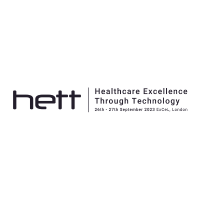Written by: Andrew Griffiths, CEO FedIP
The recent publication in NHS England of the Long-Term Workforce Plan highlights the issues that the NHS is having in the recruitment and retention of suitably qualified people to fill all the posts that are required to run the health service. The issues are the same right across the UK, in the care sector and internationally.
Part of the solution is to increase productivity by using technology and data to reduce the need for “more people”, as the workforce plan puts it, “this includes new roles to support the ongoing transformation of care”. I’m sure that the workforce plan is principally reflecting the need for clinical professions to work differently but for this to happen the Informatics / digital workforce needs to be seen as, and operate as, a profession and a key part of a profession is having specialist knowledge and expertise. Informatics in healthcare is a young profession compared with others in healthcare and has developed by people with an interest in IT gradually adapting technologies to help run departments.
To cut a very long story short, after various initiatives, we have a substantial workforce that is critical to the running of the NHS, with a lack of consistency in the levels of education and training, differing expectations of the knowledge and skills required and limited access to and incentives for CPD. This is where the occupational architecture comes in!
We’ve used the term occupational architecture to refer to a structure that can help us define and build the profession. Whilst there hasn’t been a formally adopted set of skills there are many frameworks to choose from. Being keen not to reinvent the wheel, FEDIP has been working with its professional bodies to put these together in a way that can help people to know whether they have the skills for the job they are doing, know what skills they need to progress their career, keep up to date and be committed to ethical standards of behaviour and practice. We want to drive up the demand for quality training and education and ensure that employers invest in CPD and people looking for work can see that there is a career available that is well thought of and invested in.
If the NHS is to succeed in getting the right workforce in the numbers required, then competing for (and keeping) people working in specialist technology and related roles will be an area that we need to be successful in. Whilst the prospect of competing on salaries with “big tech” is nigh on impossible, the sector (with a few tweaks!) has many of the things employees are looking for; purpose, doing good, working for a good employer, co-worker quality, career prospects and keeping up to date with new skills. These factors are rated much higher than pay and rewards. Having a successful Informatics / Digital profession will in turn allow us to have other professions that have access to the tools they need, with expertise on hand to develop products that can support new digital ways of working.
This is not to ignore the fact that all the workforce in health and care will need digital skills and the confidence to know what can be done by using digital systems in different ways. I hope that having better definitions of skills in this area will help develop and enable the
uplift of these skills right across the workforce. Recognising that innovation and new treatment pathways will only come from those directly involved with delivering care.
So, to conclude, how can we harness the people power behind technology? Firstly, we need the technology to be the best, supported and developed by experts who know how to apply that technology to the problems of health and care, freeing up the clinical professions to focus on providing the right care in ways previously not possible when information was stuck in paper notes. Secondly, we need to make sure that digital skills and ways of working are a key part of the training and education of all the workforce. Finally, we need to make sure that we use digital to provide better services that are focused on delivering truly patient-centred care.
Find out more at HETT Show, 26-27th September, ExCeL London
Join us at HETT Show on 26-27th September at ExCeL London to hear more from Andrew Griffiths, CEO, FedIP
%20(1).png?width=500&height=58&name=HETT%20insights%20logo%20RGB-04%20(1)%20(1).png)


